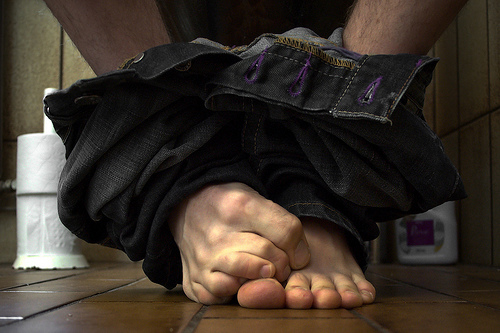
Constipation Overview
Just how constipated do you have to be to call constipation a problem. Most people defecate between 3 times a day to 3 times a week. Needing to go to the toilet for number two just once or twice a week would certainly get your doctor's attention, but the simple fact is that you don't have to rely on anyone else's definition of constipation to do something about it. If constipation makes you uncomfortable, whether it is the straining or bloating or the difficulty cleaning up afterward, you are entitled to treatment. But chances are it will be self-treatment rather than treatment at your doctor's direction.
- Important notification about information and brand names used in this slideshow!
- Photo courtesy of Alexander Ekman by Flickr : www.flickr.com/photos/parkbank/2298394078/
- www.medicinenet.com/constipation_myths_facts_pictures_slideshow/article.htm
- http://altmedicine.about.com/od/constipation/a/constipation.htm
- http://www.webmd.com/digestive-disorders/understanding-constipation-treatment

Chewing Gum And Constipation
Sugar-free chewing gum can cause both constipation and diarrhea--and it can cause them at the same time. Sweeteners like xyilitol, erythritol, and maltitol don't have calories because the gut can't digest them. Bacteria in the colon, however, sometimes can. The fermenting of the sweetener releases gas, and this gas can combine with the air bubbles swallowed in the process of chewing the gum. The combination of bubbles causes flatulence, but gas can build up in ways that keep stool from moving out of the body. At the same time, the sweeteners increase the water content of the contents of the colon, so the stool becomes watery. In some cases it is possible to have constipation (not going to the toile for number two as often as desired) and diarrhea (watery stools) at the same time. The solution? Switch to naturally sweetened chewing gum, and don't chew as much. It is an especially good idea to avoid cinnamon-flavored gum.
- Important notification about information and brand names used in this slideshow!
- Photo courtesy of The Greatist by Flickr : www.flickr.com/photos/greatist/6002002397/
- Papas AS, Joshi A, Palmer CA, Giunta JL, Dwyer JT. Relationship of diet to root caries. Am J Clin Nutr. Feb 1995. 61(2):423S-429S.
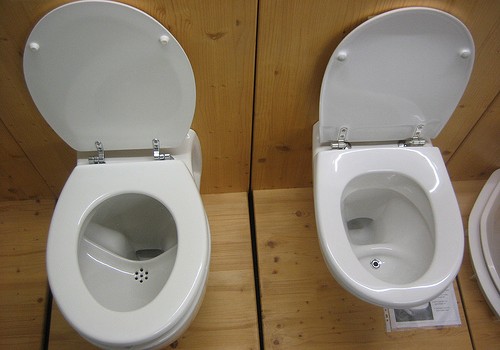
Going To The Bathroom Frequently Is Essential
"Holding it in" to go to the bathroom at a convenient time is a common cause of constipation. Many people understandably strain to prevent defecation while they are at work between bathroom breaks or while they are driving to and from work and other local destinations. People who feel the need to "go" on short shopping trips usually wait until they get home to go to the toilet. Denying the bowel its chance to evacuate causes stool to accumulate and to become impacted, so that when it finally is convenient to sit on the toilet the muscles of the pelvic floor have to do a lot more work. Make a habit of going whenever you can, even if you don't feel like it, before the beginning of your work day, and try to arrange your work and transportation schedules to accommodate trips to the bathroom.
- Important notification about information and brand names used in this slideshow!
- Photo courtesy of Sustainable sanitation by Flickr : www.flickr.com/photos/gtzecosan/3284024725/
- Johanson JF. Review of the treatment options for chronic constipation. MedGenMed [serial online]. May 2, 2007.9 (2):25-40.
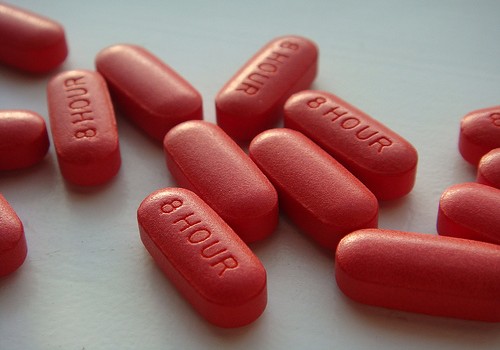
Constipation Caused By Medication
Certain kinds of medication are notorious for causing constipation. In particular, any of the pain relievers derived from opium or synthetic opioids, such as Vicodin (hydrocodone) and "oxy" (oxycodone) can shut down the bowel, usually causing rebound diarrhea when the medication is discontinued. Constipation is also a common side effect of antidepressants, Iron supplements, medications containing bismuth (such as Pepto-Bismol), cold medicines containing pseudoephedrine (such as Sudafed), aspirin and other non-steroidal anti-inflammatory drugs (such as Tylenol and Ibuprofen), many psychotropic drugs, and calcium channel blockers (especially verapamil) can cause constipation. Ironically, excessive use of stimulant laxatives over time can cause constipation, as the nerves that stimulate the intestines to push stool out of the body gradually become insensitive to stimulation.
- Important notification about information and brand names used in this slideshow!
- Photo courtesy of Deborah Austin by Flickr : www.flickr.com/photos/littledebbie11/3437101381
- Uher R, Farmer A, Henigsberg N, Rietschel M, Mors O, Maier W, et al. Adverse reactions to antidepressants. Br J Psychiatry. Sep 2009. 195(3):202-10.
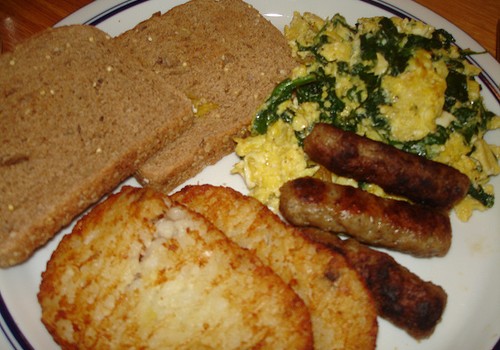
Constipation And Fiber
Plant fiber relieves constipation by absorbing water. The swollen fibers from plant foods add bulk to the stool, making it lighter and easier to push out of the body. Not all kinds of fiber, however, are equally beneficial. Insoluble fibers like those found in wheat bran can build up in the stomach, forcing stomach acid upward as they are digested. This can cause heartburn and vague symptoms like "lump in the throat." Solublbe fibers like those found in oat bran and most fruits and vegetables don't collect in the stomach, and more easily pushed out of the bowel. they also do a better job of preventing the absorption of cholesterol from food.
- Important notification about information and brand names used in this slideshow!
- Photo courtesy of @joefoodie by Flickr : www.flickr.com/photos/montage_man/3205006983/
- Uher R, Farmer A, Henigsberg N, Rietschel M, Mors O, Maier W, et al. Adverse reactions to antidepressants. Br J Psychiatry. Sep 2009. 195(3):202-10.
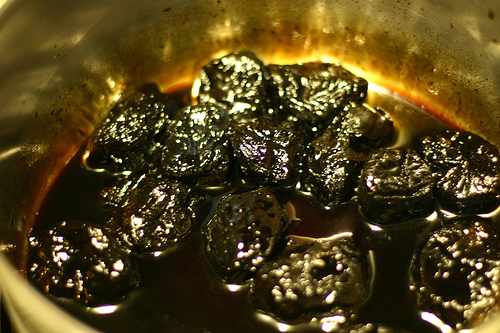
Prunes For Constipation
Prunes and prune juice are favorite remedies for constipation. Prunes are not really laxatives, that is, they don't actually stimulate a need to go to the bathroom. Instead, prunes work by providing small amounts of fiber and a sugar called sorbitol. This soluble fiber and sorbitol draw water in to the contents of the intestines, making the stool lighter and easier to propel outside the body. Pears are also a good source of sorbitol, as are peaches, apples, and rowan berries, the berries most commonly found in Europe or in markets that carry European foods. Don't use prunes or related fruits and berries, however, if you have irritable bowel syndrome, and don't consume too many. Diarrhea and gas may result.
- Important notification about information and brand names used in this slideshow!
- Photo courtesy of dalvenjah by Flickr : www.flickr.com/photos/dalvenjah/333696449/
- Lederle, FA (1995). "Epidemiology of constipation in elderly patients. Drug utilisation and cost-containment strategies." Drugs & aging 6 (6): 465–9.
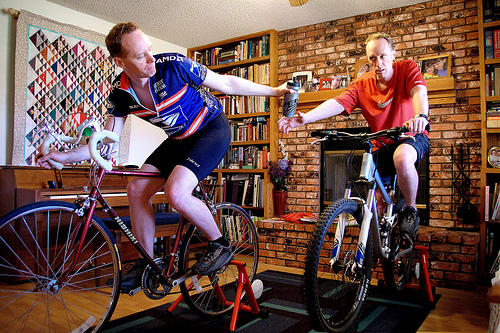
Exercise & Hydration
Gentle exercise can stimulate bowel movement. This is particularly true of exercises that build up the abs and the muscles in the pelvic floor. Excessive exercise, by the same token, can reduce bowel movement. This is most likely to occur when people do too many situps. It is essential in any muscle-building exercise to give the muscles a recovery period of 24 hours or more between workouts. It is also essential to stay hydrated when you work out. Not only do your muscles require water to "pump up" glucose into the glycogen that gives them both their builk and their stored energy, your gut requires plenty of water to keep stool and other digested contents moist and easy to move.
- Important notification about information and brand names used in this slideshow!
- Photo courtesy of Justin Ennis by Flickr : www.flickr.com/photos/averain/5379559006/
- McCallum, I. J. D.
- Ong, S.
- Mercer-Jones, M. (2009). "Chronic constipation in adults." BMJ 338: b831.
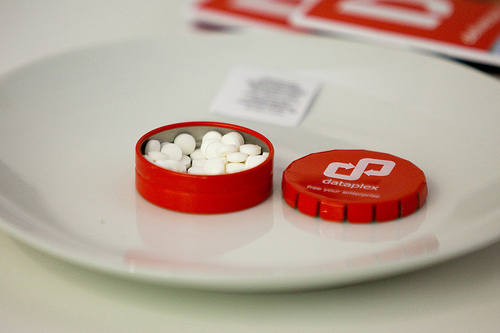
Laxatives?
Except for very occasional use, no more often that once a month, laxatives are not a good remedy for constipation. Stimulant laxatives work by forcing the muscles that hold stool in place to relax and forcing the muscles that propel stool outside the body to move. They do not soften stool to make bowel movement easier, they just force the bowels to move. If the stool is particularly hard, the result may be muscle spasms and gas without any actual bowel movement. Even worse, the bowel muscles eventually become dependent on stimulants to move, so that constipation when you are not taking laxatives gets even worse. If you decide to take a laxative, be sure you are getting plenty of water, and just use the medicaton for a day or two, long enough to evacuate your bowel but not so long as to become dependent on the drug.
- Important notification about information and brand names used in this slideshow!
- Photo courtesy of Matt Biddulph by Flickr : www.flickr.com/photos/mbiddulph/3990481808/
- Di Palma JA, Cleveland MV, McGowan J, Herrera JL (2007). "A randomized, multicenter comparison of polyethylene glycol laxative and tegaserod in treatment of patients with chronic constipation." Am. J. Gastroenterol. 102 (9): 1964–71.
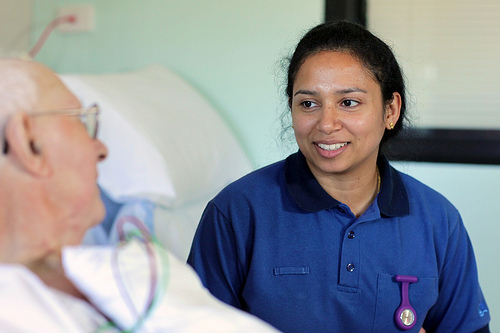
Diagnosing Constipation
The standard for treating constipation is, if you are uncomfortable, then you merit treatment. But how do you know whether what you have is really constipation? Constipation is not just a matter of how often you go. It is also a matter of how easily you go. If stools are hard to pass, especially if passing stool causes bleeding (fresh, red blood on toilet paper), you may want to treat constipation. If you are uncomfortably bloated on a regular basis, even when you have not eaten recently, you may want to treat constipation. If you have to "dig" to get rid of stool or you feel like you haven't finished when you bowels stop moving, you need to treat constipation. And if you are so constipated you can't pass gas or you vomit, then you need to see a doctor right away.
- Important notification about information and brand names used in this slideshow!
- Photo courtesy of DIAC images by Flickr : www.flickr.com/photos/diacimages/5475102971/
- Longstreth GF, Thompson WG, Chey WD, Houghton LA, Mearin F, Spiller RC. Functional bowel disorders. Gastroenterology. Apr 2006.130(5):1480-91.

Constipation During Pregnancy
Constipation is a common complication of pregnancy. Pressure on the pelvic floor by the growing fetus makes it harder to bear down to eliminate stool. Even in the early stages of pregnancy, changes in diet caused by morning sickness can lead to constipation when women become dehydrated, consume too many cups of tea, or fail to eat enough fiber. Constipation during pregnancy can be treated like constipation at any other time, except it is important to see a physician to rule out other pregnancy-related conditions that can cause constipation, especially gestational diabetes, changes in thyroid hormone levels, and changes in calcium levels in the bloodstream.
- Important notification about information and brand names used in this slideshow!
- Photo courtesy of SalFalko by Flickr : www.flickr.com/photos/safari_vacation/8020820411/
- Peppas G, Alexiou VG, Mourtzoukou E, et al. Epidemiology of constipation in Europe and Oceania: a systematic review. BMC Gastroenterol. Feb 12 2008. 8:5.




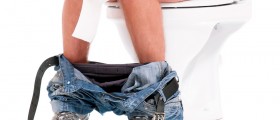


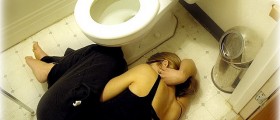

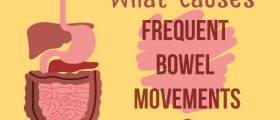

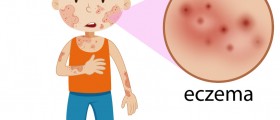
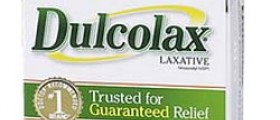

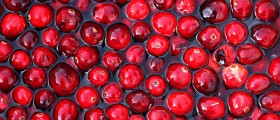
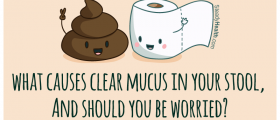

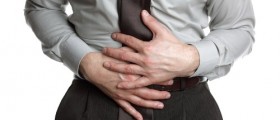
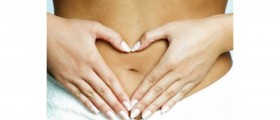
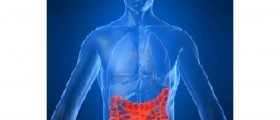




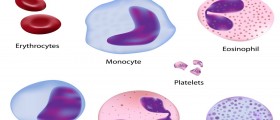
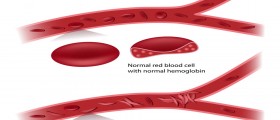
Your thoughts on this
Loading...